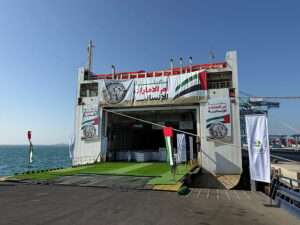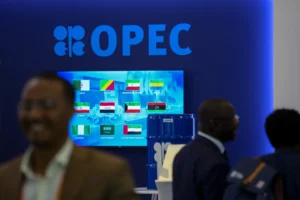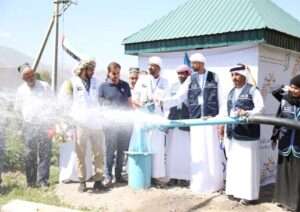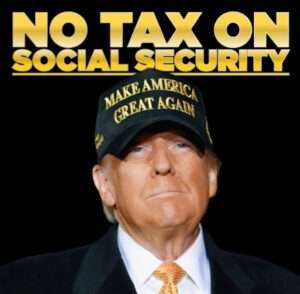By Asiimwe Angel
Qatar, a global powerhouse in liquefied natural gas (LNG) exports, has warned the European Union that it may halt gas shipments if the bloc’s stringent sustainability regulations are not revised. This ultimatum, delivered by Qatar’s Energy Minister Saad Al-Kaabi, who also leads state-owned QatarEnergy, highlights a growing rift between the EU’s climate ambitions and its energy security imperatives. As Europe seeks to reduce reliance on Russian gas, Qatar’s threat could disrupt the bloc’s energy markets and complicate its green transition.
The EU’s Corporate Sustainability Due Diligence Directive (CSDDD), slated for implementation by mid-2028, lies at the heart of the dispute. The directive requires large companies operating in the EU—regardless of their origin—to ensure their supply chains are free from environmental harm and human rights violations, such as forced labor. Non-compliance could result in fines of up to 5% of a company’s global annual revenue, a penalty that Al-Kaabi estimates could equate to 5% of Qatar’s national income for QatarEnergy.
In a letter dated May 21, 2025, sent to the Belgian government and shared with other EU member states, Al-Kaabi argued that the CSDDD, particularly its Article 22 on climate protection, conflicts with Qatar’s domestic laws and infringes on its sovereignty to set its own climate policies. He emphasized that QatarEnergy’s supply chain, involving up to 100,000 firms, faces significant compliance challenges. “Put simply, if further changes are not made to CSDDD, the State of Qatar and QatarEnergy will have no choice but to seriously consider alternative markets outside of the EU,” Al-Kaabi wrote, according to reporting by Semafor.
Qatar is the world’s third-largest LNG exporter, behind only the United States and Australia, and has emerged as a critical supplier to Europe since Russia’s 2022 invasion of Ukraine disrupted gas markets. In 2023, Qatar delivered 15.1 million tonnes of LNG to the EU, accounting for approximately 10-14% of the bloc’s LNG imports and 4% of its total gas supply. Key importers include Italy (6.8 billion cubic meters), France (2.3 billion cubic meters), and Belgium (4.3 billion cubic meters). With Russian pipeline gas flows through Ukraine ceasing in early 2025, Qatar’s reliable LNG supply has been a lifeline for the EU’s REPowerEU plan, which aims to phase out Russian gas by 2027.
However, Qatar has signaled it could redirect exports to Asia, where demand is surging and regulatory burdens are lighter. In the first half of 2024, China received 25% of Qatar’s LNG, followed by India (17%) and Pakistan (11%), markets that offer lower shipping costs and fewer compliance hurdles.
The CSDDD is a pillar of the EU’s goal to achieve net-zero emissions by 2050, requiring companies to align their operations with the Paris Agreement’s 1.5°C target. For Qatar, which has no near-term plans to reach net zero, these mandates are seen as impractical for hydrocarbon producers. Al-Kaabi has criticized the directive for forcing companies to navigate conflicting legal frameworks, arguing that penalties should be limited to European revenue rather than global turnover.
The European Commission has proposed adjustments to the CSDDD, including delaying its rollout to 2028 and narrowing the scope of supply chain checks. Yet Qatar remains dissatisfied, warning that failure to further amend the directive could lead to a supply cutoff. Such a move could tighten gas markets, drive up prices, and strain European households and industries, particularly during winter months.
Qatar’s stance could embolden other LNG exporters, like the United States or Australia, to resist similar EU regulations. However, redirecting Qatar’s LNG to Asia is not without challenges. Long-term contracts with European buyers, such as Shell, TotalEnergies, and ENI, limit Qatar’s flexibility, and breaching these agreements could trigger legal disputes. Still, Qatar’s upcoming North Field Expansion Project, set to increase LNG production from 77 million tonnes to 142 million tonnes by 2030, gives it leverage to explore new markets while maintaining its European presence.
To avert a crisis, the EU could further tailor the CSDDD, perhaps by exempting certain climate provisions for key energy suppliers or tying penalties to regional revenue. Qatar, in turn, could use its growing LNG capacity to negotiate better terms while preserving its European market share. A failure to compromise risks destabilizing the EU’s energy security and undermining its climate goals, as higher gas prices could erode public support for the green transition.
For now, Qatar’s threat serves as a reminder of the delicate balance between environmental ideals and energy realities. As the EU navigates this standoff, its ability to reconcile sustainability with pragmatism will shape its energy future.















